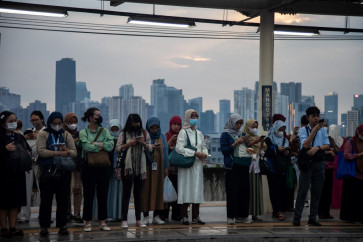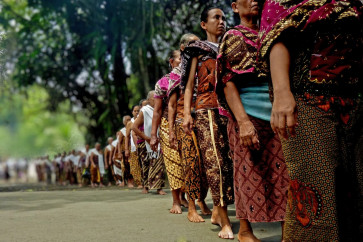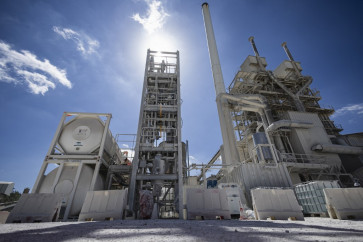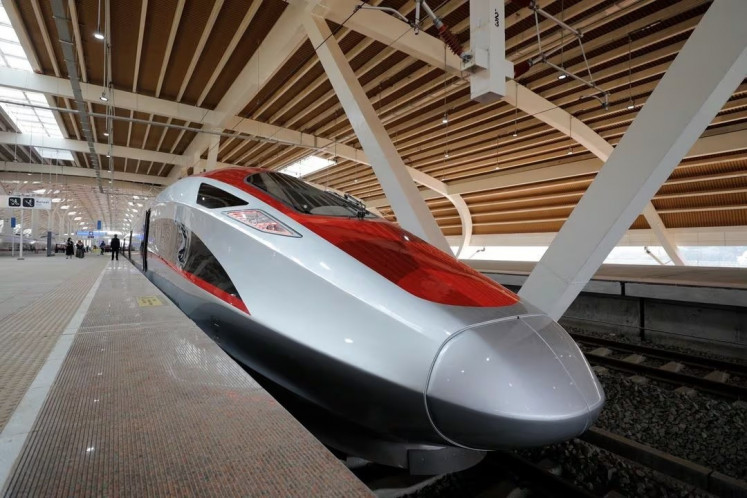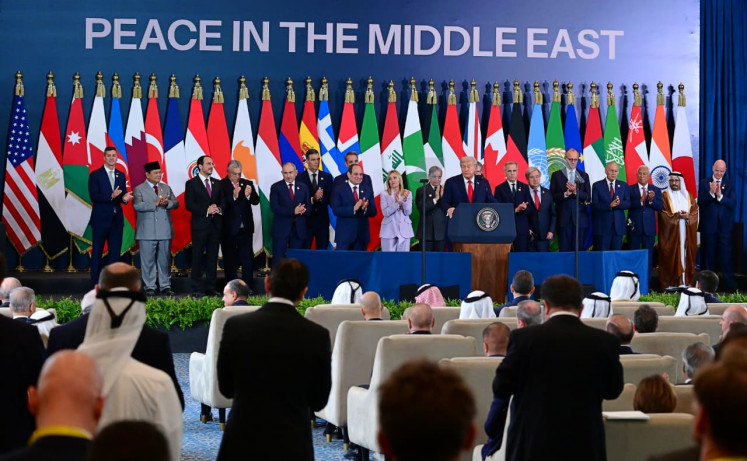Popular Reads
Top Results
Can't find what you're looking for?
View all search resultsPopular Reads
Top Results
Can't find what you're looking for?
View all search resultsWho is responsible for ‘Bersiap’?
In a surprising turn of events, a court in The Hague in September ordered the Dutch government to pay compensation for victims of Rawagede — an area in Karawang, West Java, where men were killed by Dutch brutality during Indonesia’s battle for independence
Change text size
Gift Premium Articles
to Anyone
I
n a surprising turn of events, a court in The Hague in September ordered the Dutch government to pay compensation for victims of Rawagede — an area in Karawang, West Java, where men were killed by Dutch brutality during Indonesia’s battle for independence. The court’s verdict was remarkable as it showed that justice could still be sought even after decades had passed.
The revival of this case brings hope to shedding light on atrocities suffered by Indos (Dutch-Indonesians) during Bersiap, a critical period during Indonesia’s revolution which has been erased from history books and thus diminished the role of Indos in Indonesian history.
Most Indonesian history textbooks include the short-lived Indische Party that was initiated by Ernest Douwes Dekker as part of the national awakening movement. However, the books rarely mentioned the Indo-
Europeesch Verbond (IEV), the largest Indo political party that was established to promote equal opportunity between Indo and Dutch, founded in 1919 by Karel Zaalberg.
The IEV was born as a result of the Ethical Policy in the beginning of the 20th century, when the Dutch gave more education opportunity to the Indonesian natives, an impossibility during the VOC’s rule.
As more natives gained access to education, the Indos became marginalized and had to compete with the natives. The jobs that were traditionally done by the Indos were slowly taken by the western-educated natives. Since Indos made up a very small percentage of the population, they feared that they would be marginalized even further in the future.
However, by the 1930s, the IEV shifted its orientation to the natives. The Indos realized that they could not survive alone. In 1936, the Volksraad (the legislature) submitted the Soetardjo Petition, a petition to allow the Dutch East Indies to have its own government and independence from the Dutch within 10 years. However, this petition was turned down in 1938, which resulted in the Indonesian nationalist movement becoming more radical.
History changed forever when Japan invaded the Dutch East Indies and shattered the relationship between the natives and Indos.
During the Dutch colonialism, it was common for Indos to become Dutch nationals and hide their native backgrounds. The caste was reversed during Japan’s occupation. The Dutch were put into the lowest class. The native blood was the only thing that could free Indos from being put into concentration camps.
The history textbooks in Indonesia mostly wrote of the period of 1945-1946 as a “power vacuum”. Most books highlighted this period as a heroic revolution that cost the lives of revolutionary troops due to intervention by the Allied Forces.
While these facts are partially correct, the books proved to be biased, as they hid one of the darkest chapters of Indonesia’s struggle for independence, as many Indos were slaughtered by the revolutionary armies.
The conflict between pemuda (young troops) and golongan tua (political leaders represented by Sukarno and Hatta) are well known in the history books. Sukarno and Hatta were mostly portrayed in a negative light, described as delaying the declaration of independence, while the pemuda was portrayed as courageous and brash. It is rarely mentioned that the pemuda consisted of gangsters, bandits, mobs and murderers.
On Nov. 24, 1945, Sutomo leaked propaganda to specifically kill the Dutch, Indo, Ambonese and unarmed civilians. This atrocity traumatized the Dutch-Indonesians, worsened by the increasing violence in the post-independence period.
The Dutch opened a repatriation program which was not closed until 1967. The influx of Indos to the Netherlands caused bitter rivalry in the job market. The Indos also faced problems with the weather, and were unable to adapt. They were later repatriated to the US.
With most of the Indos living outside Indonesia, the remaining few faced the threat of cultural genocide. As the Dutch language was forbidden during Sukarno and Soeharto’s regimes, many were also unaware of the long and rich Indo history. In fact, they faced a situation similar to being whitewashed, mocking their culture, as Indos were portrayed as betrayers, the Dutch’s dogs (anjing Belanda).
Unlike the case of Rawagede, the situation of Bersiap was more complicated. The pemuda was an irregular fighting force and not part of the official military. It is unlikely that the Indonesian government could be sued and held responsible for Bersiap, as most of the violence, such as in 1965 or May 1998, remain in the dark.
However, it is also insulting to the victims that Sutomo, regardless of his contribution to Indonesia as a whole, was declared a national hero on Nov. 20, 2008. At the very least, the Indonesian government should be objective in its history by covering both sides of the story, including the violence that Indos and natives endured.
Unlike the Jewish community, which has strong lobbying and political power worldwide, the Indos are an underrepresented group that has remained sporadic and has never formed as a political entity. A long history of marginalization caused them to lack motivation to gain political power, just like the Chinese-Indonesians.
For reasons of humanity, Germany did not enact Hitler as a national hero, regardless the fact that he successfully restored Germany from ruin. Indonesia, however, may have deified a war criminal as hero, which is unacceptable.
The writer is a researcher with HD Asia Advisory, Jakarta.


